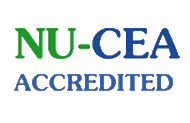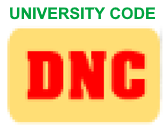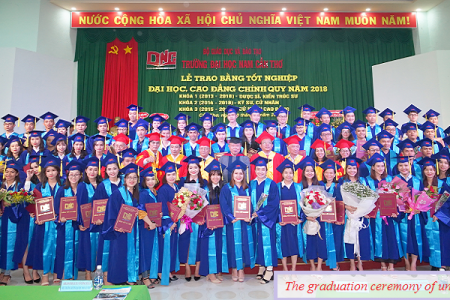Apr 24,2023
Curriculum of Bachelor of Business Administration
Curriculum of Bachelor of Business Administration
General Education courses: 36 Credits
|
1 2 3 4 5 6 7 8 |
Political Education courses Military training Physical Education General State Law Applied psychology in business Advanced mathematics Probability and statistics Basic Informatics |
11 3 8 2 2 3 3 3 |
|
Elective Courses (not less than 4 credits) |
4 |
|
|
9 10 11 12 13 |
Logics Consumer behavior Basic Vietnamese culture Business communication General sociology |
2 2 2 2 2 |
Specialization courses: 91 Credits
|
14 15 16 17 18 19 20 21 22 23 24 25 26 27 28 29 30 31 32 33 34 35 36 37 38 39 40 |
Microeconomics Macroeconomic Basic Management Basic Marketing Basic Accounting Economic law Financial and monetary theory Econometrics Information systems Management Marketing Research Investment projects Appraisal Professional practice Organizational behavior Financial Management E-commerce Human resource Management Strategic Management Quality Management Production Management Sales Management Marketing management Business analysis Management Accounting Financial Accounting Special English for Business Administration Research methods in economics Research Marketing |
3 3 3 3 3 2 3 3 2 3 3 2 2 3 2 2 3 2 3 2 3 3 3 3 3 2 3 |
|
Elective courses (not less than 8 credits) |
8 |
|
|
41 42 43 44 45 46 47 48 49 50 51 52 53 54 55 |
Office Management Stock market Startup Innovation Corporate culture and business ethics Psychology and Art of Leadership International payments Tax Advanced Informatics Public Relations International Economics Brand management Supply Chain Managment Change management Final Internship Graduation thesis |
2 2 2 2 2 2 2 3 2 2 2 3 3 4 6 |
|
Replacement courses for thesis |
||
|
56 57 58 |
E-Marketing International Business Management Applied Informatics in Business |
3 3 3 |
Course Description
General State Law 2(2, 0)
The course introduces general knowledge about State and Law: the origin of State and Law, the nature, role, types and forms of State and law, overview of the political system, the basic contents of the main branches of law in the legal system. The course consists of 6 chapters with two blocks of general knowledge on the state law: (1) general theoretical knowledge about the State and Law, (2) general knowledge about important legal fields in the system, Vietnamese legal system and international law.
Basic Management 3(3, 0)
The course provides basic knowledge of management studies applied in business: nature, objectives, research purposes, functions and tasks of management. The course also delves into the functions of management such as: production and operations management, business environment, business decisions, strategic planning, human resource management and a number of issues in business management such as change management, conflict management, risk management.
Basic Marketing 2(2, 0)
The module provides basic understanding of marketing principles and their application in business practice: definition of modern marketing; general marketing activities of the business such as the marketing environment and the market of the business; identify customer needs and behavior; Marketing research methodology and principles of business behavior with its market include basic marketing strategies and policies, organization of marketing management of enterprises.
Psychology 2(2.0)
The course introduces basic concepts about the nature of human psychological phenomena; the role of activities and language in psycho-conscious development; Provide basic understanding of human psychological phenomena; awareness, attitude, and behavior; understand the basic components of the human personality structure; Help students have general knowledge about psychology so that they can apply it in the process of contacting with partners.
Logics 2(2,0)
The course equips students with knowledge on the logical laws of thinking, forms and methods of correct and correct thinking, and methods of scientific perception and refutes fallacious arguments in life; the rules and forms of correct thinking, contributing to improving the level of thinking, creating the habit of scientific thinking.
Advanced Mathematics 3(2,1)
The course covers definition of limits and continuity of functions; Calculations of derivatives and differentials of functions; Define primitives and indeterminate integrals of functions; methods to calculate the indeterminate integral; Define definite integral calculation methods; applications of definite integrals; Vector spaces, determinant-matrix and solve systems of linear equations as the basis for learning econometrics.
General Informatics 3(2, 1)
Introduction to basic knowledge of informatics: (1) Number system; Information representation in electronic computers; (2) General introduction to operating systems; Windows operating system (3) Text editing on computers: Introduction to a particular word processing system, Microsoft Word (4) General Introduction to spreadsheet: Microsoft Excel. (5) Computer network.
Probability theory and statistics 3(2,1)
The course consists of the probability theory part aims to equip the basic knowledge of probability theory such as: Randomness and probability; random quantity; some probability distribution and the law of large numbers. The statistics part uses the basic knowledge of probability theory to solve the problems of statistics such as: test ; correlation and regression.
Microeconomics 3(2,1)
Microeconomics provides an overview of economic theory and methods in solving the three basic economic problems of an economy: what to produce, how to produce and for whom. The course begins with the study of the laws of supply and demand: the characteristics of individual demand, and from there infer the demand of the market. The characteristics of production, cost, and profit. Options that optimize firm profits in competitive, imperfectly competitive, and oligopolistic markets. The final part of the course introduces problems with market failures, asymetric information, and the role of government.
Macroeconomics 3(2,1)
This module defines the macroeconomic variables such as GDP, inflation, unemployment, interest rates, exchange rates, consumption, investment, and savings. In addition, this module introduces simple macroeconomic models to explain the relationship between the aforementioned macroeconomic indicators. Content includes both long-run economic growth and short-run output fluctuations. Macroeconomic policy is also presented at an introductory level in this module.
Accounting Principles 3(2,1)
The course introduces the accounting information, accounting principles, accounting object, accounting period, balance sheet, Business performance report, double-entry bookkeeping. Double entry. Account transfer. General accounting and cost accounting. Relationship between balance sheet and accounting accounts.
Econometrics 3(2,1)
The course introduces some basic econometric techniques in economics and business. Regression technique and least squares estimation. Two-variable and multivariate regression models. cases that violate the basic assumptions of the model: detection and solution measures.
Information System Management 2(2, 0)
The course provides basic knowledge on information organization and communication systems; Analysis and design of system; information systems and information systems management; Information system database: concept, structure, classification; Information systems analysis. The goal of information systems analysis. Methods of collecting information. Data encryption. Information systems modeling tools.
Corporate Culture and Business Ethics 2(2,0)
The subjet equips knowledge about business ethics and corporate culture: knowledge of corporate culture and business ethics. Expressions and forms of corporate culture, factors that create corporate culture, build corporate culture and age in business activities.
Investment Projects Appraisal 3(2,1)
The course equips students with the basic methodologies for establishing and validating a project. The course focuses on production and business investment projects of small and medium-sized enterprises, instructing students to use specialized management knowledge on finance, marketing, human resources to implement a business idea into a viable plan and evaluate the feasibility of the project.
Research Methods in Business 2(1,1)
The course introduce knowledge on how to define a research problem, design the research and set up the research proposal; Use basic statistical analysis tools (descriptive, relational, differential) for data analysis. Students must complete a variety of small assignments and complete a research proposal at the end of the course.
International Payments 2(2.0)
Equip students with knowledge and techniques of international payment operations as well as credit operations of commercial banks for import and export traders in international payment in order to complete theory and techniques. Ability to fully practice an import-export transaction for students.Understand the legal basis for international payment activities and international payment conditions in foreign trade contracts. Understand the content of international payment methods, commercial documents mainly used in international payments and apply them in practice.
Financial Management 3(2,1)
Presents issues related to an overview of financial management and decisions related to long-term investments in enterprises. Concepts related to an activity in business management - financial management; factors affecting financial management decisions: macro and micro environment, currency fluctuations over time, the effects of profit and risk in decision making.
Strategic Management 4 (3, 1)
The course help students understand concepts related to strategy and strategic management. Analysis of the internal and external environment of the business, strategic models applied in practice (case studies). Define strategic vision, goals, mission. Make a specific strategy, choose the strategic option. Organize the implementation of the established strategy. Manage, control and adjust specific strategies.
Human Resource Management 2(2.0)
The course equips students knowledge related to personnel planning; setting up job descriptions; building recruitment process; define training and development programs; know how to evaluate employee performance; learn and set up the salary - remuneration system for enterprises; choose appropriate forms of labor discipline, create a safe working environment for employees and satisfy employees' needs. Equip students with basic knowledge on how to effectively attract, train and develop staff as well as retain personnel in small and medium enterprises.
Sales Management 3 (2, 1)
Overview of sales and sales management; Develop a sales plan; Technical sales and customer care; Design and organize the sales force in the enterprise; Manage sales team and analyze and evaluate sales results.
Production Management 2(2.0)
Building awareness and understanding about the role of production-operations management in the organization. Provides basic knowledge of design and operation of production systems. Practice qualitative and quantitative analysis skills needed for production management. Provide basic concepts and methods on modeling activities, helping learners to apply them to solve specific problems. Within the scope of the production management module, it will mainly focus on 3 parts, including: (1) An overview of production management; (2) Design of production & service systems and (3) Operation of production systems.
Quality Management. 2(2,0)
Quality, product quality, service quality, product quality management, quality cost, quality management tools and a number of quality management systems are being widely applied today. The course consists of 3 parts: Overview of quality; Quality management tools; Some quality management systems
Marketing Management 2(2.0)
An overview of marketing and its functions in business. Identify marketing management processes, strategic planning, marketing plans, marketing programs. Find market opportunities and satisfy target customer needs. Product strategy management and new product development. Managing distribution strategy and developing new distribution channels. Price strategy management. Marketing and communication strategy management.
Brand Management 2(2.0)
Provide knowledge and skills of brand management to students. The module provides basic knowledge about the brand; how to build a brand; design, trademark registration; Brand management in the business process. Some general branding issues. Branding. Identify the brand name¬. Brand logo design. Register for trademark protection. Brand management in the business process.
Business Communication 2(2.0)
The subject equips students with skills in basic communication methods and skills for work after graduation. The subject is highly practical, communication methods and skills are taught and practiced right away. The basis of the communication process, the environment in which the communication process is organized, the art of speaking and presenting an oral report. Interview and lead the conference, develop writing skills in communication.
Financial Markets 2(2.0)
Equip students with basic knowledge about financial markets, the instruments circulating in the financial market, financial institutions. Mechanism of operation of each type of market, the essential functions of the financial market, as a foundation for students to study more deeply the types of financial markets. Provides an overview of the operating mechanism and components of the financial market.
Psychology and Art of Leadership. 2(2,0)
Provides basic knowledge related to leadership activities, the nature of the leader, the leader's qualities and skills, the most effective use of the leader's power, the concordance between the leader's style leadership with each specific situation, promote collective capacity, survey and evaluate leadership effectiveness according to scientific methods, in order to assess leadership capacity, distinguish strengths and weaknesses of leaders and clear leadership responsibilities.
Tax 2(2.0)
Tax concepts, tax classification and systematic review of taxes. Calculating and declaring basic taxes through a system of practical exercises close to the reality of businesses. This course consists of two main parts: (1) general issues about the origin, nature, role of taxes, and scope of tax effects in the competitive environment and the monopoly environment (2) the current regulations on taxes in Vietnam, including: value-added tax, special consumption tax, import-export tax, agricultural land use tax, natural resources tax, and income tax. personal, corporate income tax, license fee, registration fee and other fees.
Public Relations 2(2,0)
The course is to help students have a basic understanding of public relations that can be applied in practice: understand where public relations is placed in relation to other fields of study and profession. Understand the fundamental principles and theories of public relations and find out how they were developed. Understand the importance of communication in public relations activities, the basic skills needed when communicating with the media and tools of public relations.
International Business Management 3(3.0)
The course consists of 5 chapters, divided into three parts with three objectives: Building basic knowledge about foreign trade. Knowledge of professional techniques in import and export business. Equipping knowledge for international business administration.
Marketing Research 3(3,0)
The course introduces how to identify the research problem and design the research plan. Select a sample and conduct data collection. Statistical analysis and reporting of results. This course helps students how to collect, process and analyze market information scientifically for service for business decision making.
Analysis of Business Operations 2(2.0)
The course helps students reading and analyzing financial statements to provide information for making business decisions. Analysis of factors affecting profit. Analysis of financial statements of enterprises shows the meaning of the figures on the reports, through the relationship between the items on the balance sheet, it will assess the volatility as well as the capital structure, sources of income and capital. enterprise capital. Profitability, capital flow, and solvency of the enterprise will also be clarified when analyzing financial statements.
Applied Psychology in Business 2(2,0)
The course introduces nature of employee psychology, buyer psychology, and communication skills in real business conditions. The objective is to present the basic knowledge of business psychology. Apply knowledge of psychology of workers, psychology of buyers into practice. Recognizing and capturing the psychological characteristics of employees and buyers.
Consumer Behaviors 2(2.0)
This course provides an overview of consumer behavior and explores the factors that influence the decision-making process of individuals when it comes to purchasing goods and services. Topics covered in the course include: Introduction to Consumer Behavior, Consumer Motivation and Perception, Consumer Learning and Memory, Attitudes and Attitude Change, Group Influence on Consumer Behavior, Individual Differences in Consumer Behavior, Consumer Decision Making.
Change management 3(2,1)
This course is one of replacement courses for the graduation thesis. The subject equips learners with the necessary knowledge about: the form of change, the type of change, the pressures that cause the organization to change, etc. Learners are also provided with knowledge about the change management models, change management process, the responses of individuals in the organization to changes.
Logistics management 3(2,1)
The course equips students with the basics of logistics and supply chain management, including concepts, definitions, values, methods, and techniques of logistics management as well as build a supply chain management system. Ability to understand the logistics activities inside the business. Understand how businesses apply information technology in logistics, inventory management, transportation coordination and apply logistics strategies to increase competitiveness in the market.



